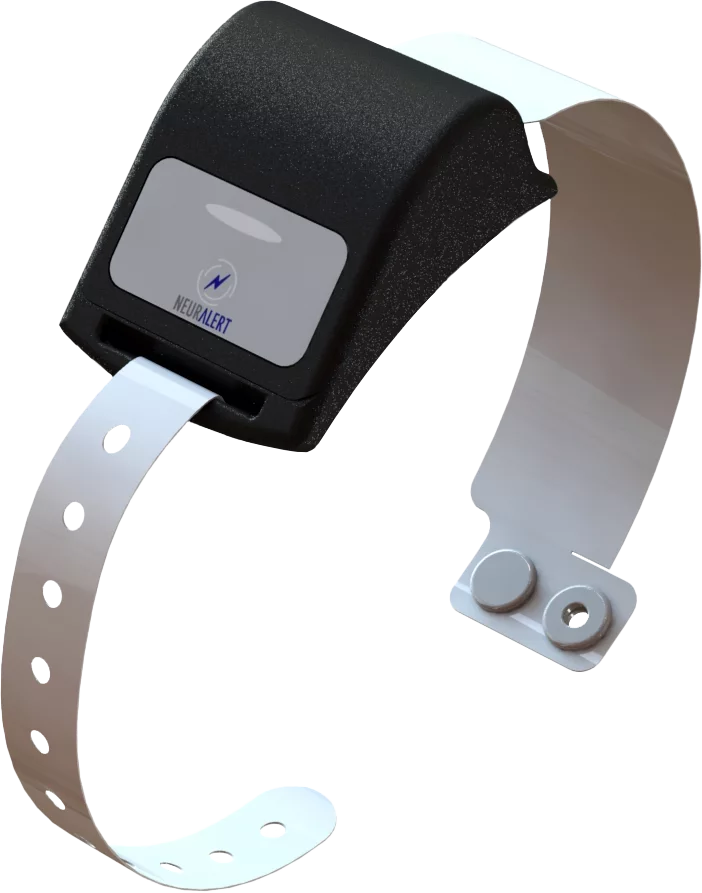Non-invasive stroke detection device hits major milestone
Philadelphia, PA – Neuralert Technologies, makers of a lightweight, non-invasive wristband device that automates stroke detection and alerting, has announced that it has achieved Minimum Viable Product (MVP) status. To achieve this milestone, recently developed purpose-built wearable devices are now combined and working in conjunction with its patented algorithm and alerting software, completing the functional arc of stroke detection, data analysis, and medical staff alerting.
One of the hallmark indicators of stroke is asymmetrical arm movement (e.g., weakness, neglect or less movement on one side). Neuralert’s device can detect the onset of asymmetric movement in as little as fifteen minutes even if the wearer is asleep. The stroke detection devices require no time wasting baseline development, greatly speeding stroke detection, assessment, and treatment, which can saves lives, improve outcomes, and helps enable patients to continue to live full and independent lives.
“Our mission is to end the devastation caused by a stroke that is not detected in time for effective treatment,” said Eric Corkhill, Neuralert CEO. “With the delivery of working wristband devices and development of the software that utilizes our stroke detection algorithm, we are extremely proud to have achieved this major milestone. Neuralert will be the first, non-invasive, continuous wearable monitor that automates stroke detection, and will lead to more patients getting proven treatments, faster.”
Neuralert’s mission is to accelerate the treatment for stroke via faster detection and automated alerting. One out of four people living today will have a stroke, making it the No.1 cause of long- term severe disability and the No. 5 cause of death. Recent advances in treatment have led to remarkably improved outcomes from stroke …but only if discovered in time. Delays in stroke identification result in lower likelihood of receiving time critical treatment resulting in worse outcomes and even death. In the hospital, identifying stroke symptoms is challenging, as patients are bed bound and/or sedated, making strokes harder to detect, and nurses are not able to assess patients frequently enough to insure that it is identified in time for treatment. Neuralert constantly monitors for stroke and automates an alert resulting in a faster stroke detection process than manual methods used today. Neuralert has undergone rigorous studies which have shown that the device is able to detect stroke in as quickly as 15 minutes. Reduction in stroke detection time will save patient lives, improve outcomes, and reduce hospital costs and liability.
“We are thrilled that Neuralert has achieved Minimum Viable Product status.” said Steven Messé, MD, Neuralert Co-Founder. “Our device represents a breakthrough in technology that offers significant advantages over current alternatives. Stroke is a terrible disease which causes death and major long-term disability, so being able to detect it at a stage when it is most treatable is incredibly exciting, as there will be a tremendous benefit for both patients and their families.”
About Neuralert Technologies
Founded in 2019 as a spin-out from the University of Pennsylvania, Neuralert Technologies’ mission is to transform the method of monitoring for stroke symptoms in hospitalized patients. By combining lightweight, non-invasive, wearable devices with a patented algorithm, the Neuralert system constantly monitors patients for stroke symptoms and automatically alerts hospital staff when detected. Neuralert’s device speeds treatment, saves lives, and improves outcomes. Neuralert Technologies is headquartered in Philadelphia, Pennsylvania.
